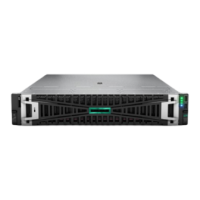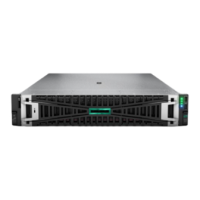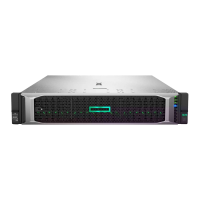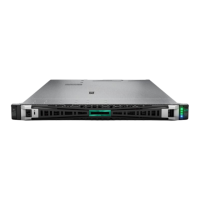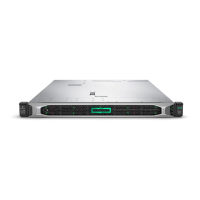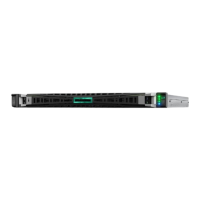4. Save your changes.
5. If you selected Network Boot, reboot the server so that the NIC boot option appears in the boot order
list.
Enabling or disabling PCIe Slot Network Boot
Use the PCIe Slot Network Boot option to enable or disable UEFI network boot for NIC cards in PCIe
slots.
Procedure
1. From the System Utilities screen, select System Configuration > BIOS/Platform Configuration
(RBSU) > Network Options > Network Boot Options > PCIe Slot Network Boot.
2. Select a PCIe slot entry.
3. Select a setting.
• Enabled—Enables UEFI network boot for NIC cards in PCIe slots.
• Disabled—Disables UEFI network boot for NIC cards in PCIe slots.
4. Save your changes.
Setting HTTP support
Prerequisites
Use this option to control the UEFI HTTP(s) boot support when in UEFI Mode and using the Embedded
UEFI Shell > Discover Shell Auto-Start Script using DHCP setting.
To enable HTTPS boot, either by selecting Auto or HTTPS only, you must enroll the respective TLS
certificate of the HTTPS server under Server Security > TLS (HTTPS) Options.
Procedure
1. From the System Utilities screen, select System Configuration > BIOS/Platform Configuration
(RBSU) > Network Options > Network Boot Options > HTTP Support.
2. Select a setting.
• Auto—Automatically adds HTTP(S) boot options to the UEFI Boot Order list for every network port
that is enabled for Network Boot. Enables the system to boot to the HTTP or HTTPS URLs
provided by the DHCP server. Any other URLs provided by the DHCP server are ignored.
• HTTP only—Automatically adds HTTP boot options to the UEFI Boot Order list for every network
port that is enabled for Network Boot. Enables the system to boot to the HTTP URLs provided by
the DHCP server, and to ignore any HTTPS or other URLs that are provided.
82 Enabling or disabling PCIe Slot Network Boot

